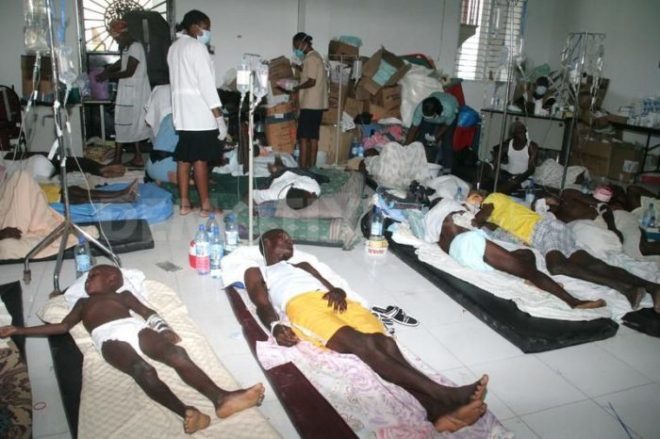
Monday July 3, 2017
An international charity on Monday expressed concern about the rising cases of cholera outbreaks in Somalia, South Sudan and Yemen.
The Norwegian Refugee Council (NRC) said so far, the deadly disease has hit about 300,000 people in Yemen, Somalia, South Sudan and other countries where conflict has ruined health sectors.
"Conflict in Yemen, Somalia and South Sudan has ruined health sectors and public water and sanitation networks, spreading cholera to too many places where we have not seen it before," NRC secretary-general Jan Egeland said in a statement.
"Cholera in 2017 is easily preventable and should belong only in the history books. Its return as a major killer today is an outrage," he added.
Cholera is a potentially fatal water-borne disease transmitted through contaminated water and/or food. It causes watery diarrhea and vomiting that can rapidly lead to death through severe dehydration.
Generally the cholera bacteria spreads in places with poor hygiene, where people do not use latrines to dispose off excreta, or do not wash their hands with soap or ash after defecation
According to the charity, about 163 people died from cholera and 4,932 cases were reported this year in South Sudan, compared to zero cases recorded during the same period in 2016.
Somalia is experiencing its largest outbreak of cholera in five years, with 763 deaths and 48,607 people diagnosed with cholera since January, said the charity.
In Kenya, four people have died from cholera, with a total of 146 infected as of May 21 while 780 people have died from Acute Watery Diarrhoea in Ethiopia.
The charity said a total of 35,665 cases were recorded, mostly in eastern regions of the country, according to UN Office for Coordination of Humanitarian Affairs (OCHA).
Progress is being made in Ethiopia, where the number of cases has dropped 88 percent from April to end of May.
Egeland said civilians, many of them children, are not dying from war wounds, but from a preventable disease.
"We need clean water and sanitation for hard hit communities and increased funding for the medical response, so that health care staff will have the tools and medicines they need to halt this cholera crisis," he added.
According to NRC, Yemen is worst hit with cholera having claimed 1500 lives across the country in just two months. More than 250,000 suspected cases of the deadly disease have been recorded, with over 200 new cases every hour.
"War and a drastically shrinking economy continue to cause devastating food shortages and widespread malnutrition in the country. This is leaving many Yemenis weakened and more vulnerable to disease. Millions in Yemen now live without access to clean water, sanitation or health services," it said.